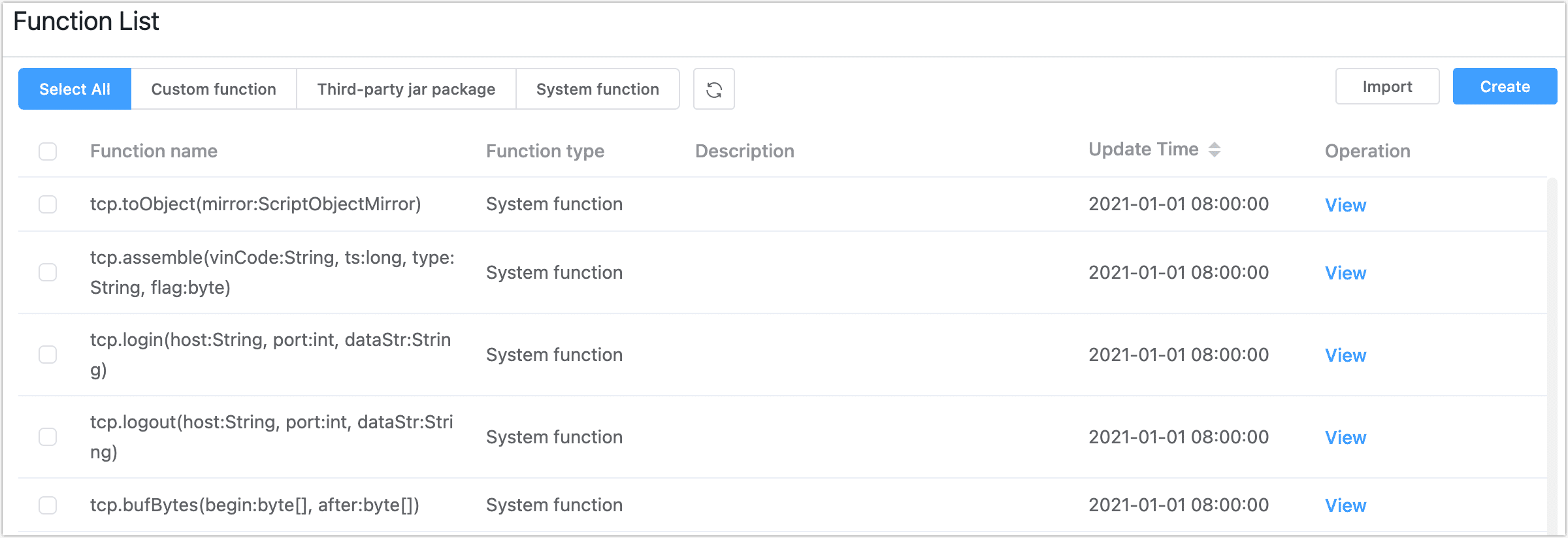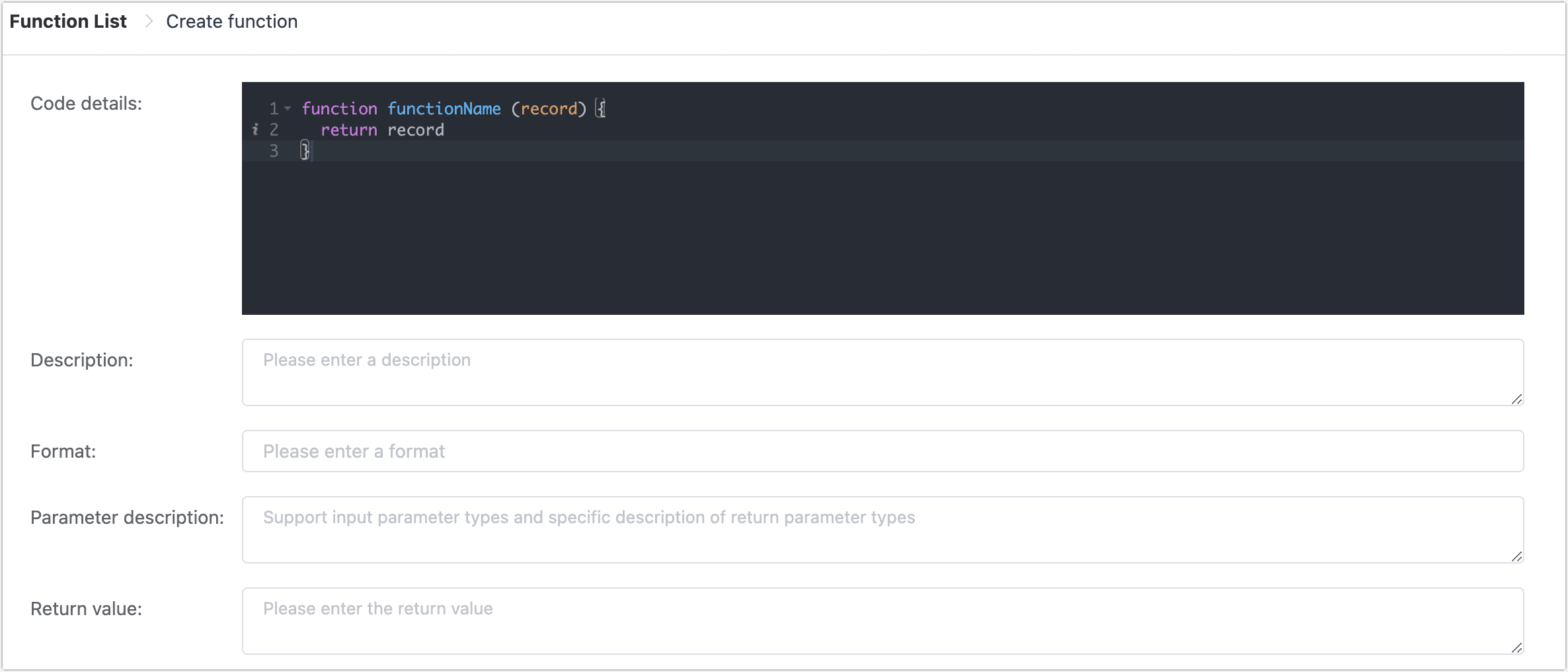Manage Functions

 TapData Enterprise can be deployed in your local data center, making it suitable for scenarios with strict requirements on data sensitivity or network isolation. It can serve to build real-time data warehouses, enable real-time data exchange, data migration, and more.
TapData Enterprise can be deployed in your local data center, making it suitable for scenarios with strict requirements on data sensitivity or network isolation. It can serve to build real-time data warehouses, enable real-time data exchange, data migration, and more. TapData Community is an open-source data integration platform that provides basic data synchronization and transformation capabilities. This helps you quickly explore and implement data integration projects. As your project or business grows, you can seamlessly upgrade to TapData Cloud or TapData Enterprise to access more advanced features and service support.
TapData Community is an open-source data integration platform that provides basic data synchronization and transformation capabilities. This helps you quickly explore and implement data integration projects. As your project or business grows, you can seamlessly upgrade to TapData Cloud or TapData Enterprise to access more advanced features and service support.TapData supports a wide range of functions to facilitate the definition of processing steps, allowing for their use in JavaScript (JS) nodes. Additionally, you can freely define custom functions or import third-party JAR packages to introduce new functions as needed.
Procedure
In the left navigation bar, select Advanced > Function List.
On this page, you can see the functions currently available. For example, click View next to a system function to learn more about it.

If the existing functions do not meet your needs, you can click Create in the upper right corner to define a new function. Click Save once setup is complete.
tipAlternatively, you can click Import and then import functions from the package (which must comply with TapData standards). Subsequently, functions from that JAR package can be used in JS nodes using the general format: function name.method name (specific parameters).

- Code Details: You can write your own function logic here.
- Description: A description of what the custom function does.
- Format: The command format for the custom function, useful for prompting when calling the function.
- Parameter Description: Specific explanations for the supported input parameter types and the return parameter types.
- Return Value: The return value of the custom function.
For custom functions, you can select them to export for backup or share with other team members. You can also import custom functions.
